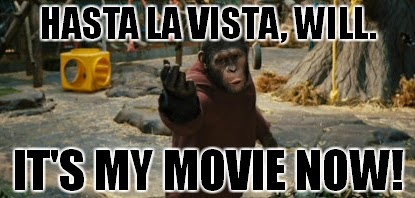There is a less frequently seen template where the hero duties shift from one protagonist to another at around the halfway point. For example, look what happens to Marion Crane at the midpoint of Psycho.
And if you thought Ellen Burstyn was the protagonist of The Exorcist, then why, after driving the story for most of the first hour, does she spend the last 45 minutes of the movie relegated to sitting and worrying and waiting while Father Karras steps in to do the dirty work of dispatching the Devil for her? Is it a flawed Oscar-winning script, or one of the top ten highest grossing movies of all time when adjusted for inflation?

It turns out a number of films are capable of shifting from one protagonist to another without losing the audience. The first act of The Godfather was all about Marlon Brando, who is unconscious for most of the second act—and remains on the story’s sidelines after he recovers—while the other protagonist, Al Pacino, hides out in Sicily for half the second act, also not moving the story forward. Apparently, nobody minds when this happens in one of the most acclaimed movies of all time.

2014's Dawn of the Planet of the Apes is a standard two-hander, with Caesar (Andy Serkis) and Malcolm (Jason Clarke) as dual protagonists, working together to each lead his own tribe through his own personal journey. But its predecessor, 2011’s Rise of the Planet of the Apes is virtually split into two movies almost as evenly as Rise is from Dawn.
In the first half of Rise, James Franco raises a super-intelligent chimp in hopes of finding a cure for Alzheimer's before his father (John Lithgow) succumbs to the disease. Once the movie separates man and monkey at the midpoint, we stay almost entirely with the hairier hero (Serkis) for a gripping new story of an ape uprising while Franco's character, frankly, ceases to evolve.

Be careful. Write a script with a one-way seismic shift in protagonists like Rise, Psycho, The Exorcist, and The Godfather, and you're likely to hear professional readers trained on the one-protagonist-per-script paradigm call it a “mistake,” unless they’re looking at it in hindsight after it’s won accolades and grossed a fortune. So the tricky part is getting them to stop thinking like a chimp.
Rise was big and exciting and made over $480 million worldwide without limiting itself to a single protagonist on a single hero's journey because it knows: There's more than one way to save a cat in screenwriting.
(Portions of this article first appeared on Five Sprockets on August 15, 2011.)
No comments:
Post a Comment